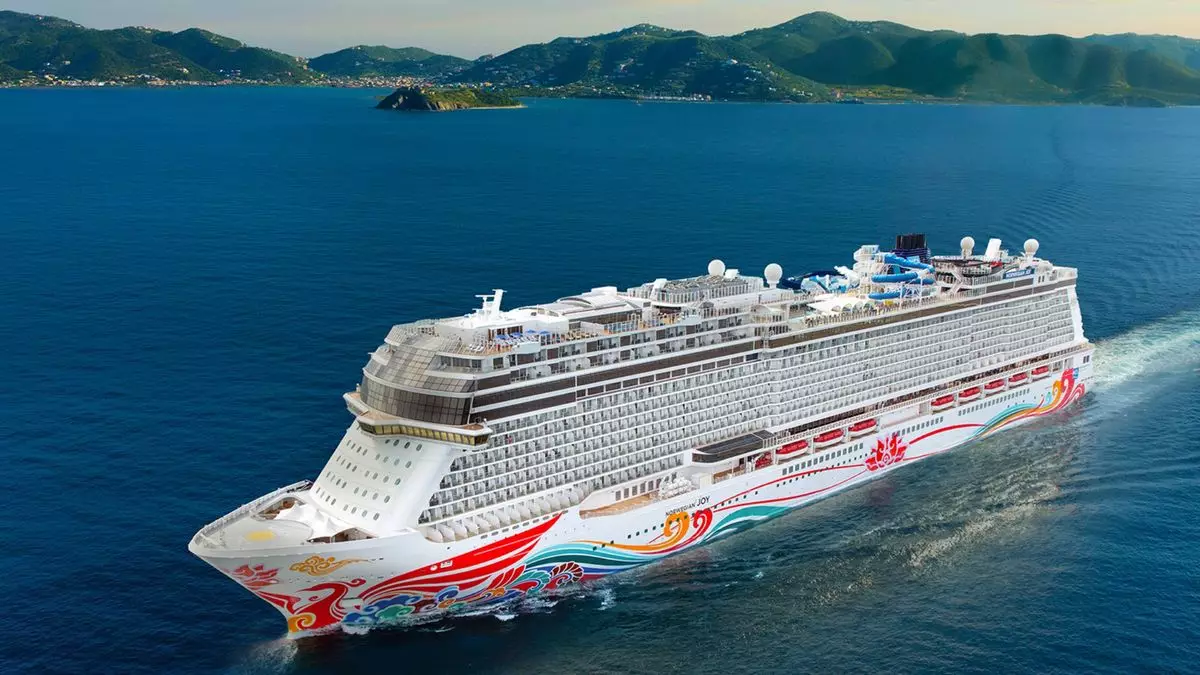The cruise industry is often perceived as a bellwether for both leisure travel and broader economic trends. Within this context, the comments made by Norwegian Cruise Line Holdings (NCLH) CEO Harry Sommer during the company’s recent earnings calls are particularly telling. While the threat of new taxation levied by the Trump administration against cruise lines hangs in the air, there is also the potential for geopolitical developments to reshape the industry’s future. Particularly notable are Sommer’s remarks about the administration’s diplomatic efforts regarding the Israel-Hamas conflict and the war in Ukraine. This article delves into these comments and explores how they could influence the future trajectory of NCLH.
Geopolitical Context and Its Impact
Sommer articulated a cautious optimism regarding the potential for peace in regions heavily intertwined with the cruise industry, namely Israel and Ukraine. His assertion is rooted in the recognition that peace accords could revive tourism and cruise operations in these areas—especially relevant for NCLH’s strategic plans for 2026. The removal of conflicts could lead to an increased tourist influx to both Northern Europe and the broader Mediterranean area, restoring routes that are currently inaccessible.
By choosing to anchor a significant portion of their fleet in Northern Europe—a strategic business decision aimed at positioning NCLH for future growth—Sommer suggests that the company is proactively forecasting favorable conditions. However, if St. Petersburg, an erstwhile staple of Baltic itineraries, becomes operational again, it could dramatically alter the competitive landscape, allowing NCLH to capitalize on increased demand in the region.
Financially, NCLH appears to be in robust health. The company reported record revenues, net yield growth, and a significant EBITDA increase for the last fiscal year. Specifically, the company achieved a total revenue of $9.5 billion for 2024, which translates to an 11% increase over 2023, despite only a 3% increase in capacity. This is a promising indicator that demand is outpacing supply, a sign that suggests the company is well-positioned to weather impending economic challenges, including potential taxation.
Furthermore, Sommer noted occupancy rates reached 104.9% over the past year, demonstrating that not only is there demand, but consumers are eager to cruise, even as we approach an era marked by economic uncertainty. When juxtaposed with the slightly slower performance of luxury brands—Oceania and Regent—NCL’s primary brand appears to be thriving. Both the booking pace and optimal booked position outlined by Sommer indicate a solid foundation, making NCLH a strong competitor in the cruise sector.
However, the looming threat of increased taxation by the U.S. government poses a potential risk to future profits. This uncertainty casts a shadow over the optimism expressed by the NCLH leadership team. While it might be premature to speculate on the direct impact of these potential tax changes, Sommer’s remarks indicate a clear acknowledgment of the situation while maintaining a focus on long-term growth. NCLH must navigate this potential financial minefield carefully. If the administration decides to move forward with taxing the cruise industry, it could impose significant challenges for future operations and profitability.
One of the more refreshing aspects of Sommer’s comments is his emphasis on long-term strategy versus short-term gains. He underlined NCLH’s commitment to its operations in an evolving market landscape, portraying a sense of resilience and adaptability. This attitude is significant not only for the company’s investors but for employees and stakeholders as well.
Whether through geopolitical peacemaking or financial adjustments, the future looks complex for NCLH. The path may be fraught with challenges, but the company appears to be gearing up to tackle them head-on. As they prepare for an optimistic 2026, NCLH remains committed to growth, driven by an acknowledgment of the international factors that influence the cruise industry’s future.
While immediate concerns such as potential tax changes loom, the overarching narrative for NCLH is one of cautious optimism, shaped by both financial resilience and the potential easing of global tensions. As the company dresses its sails for the future, its navigational skills will be tested, but with a keen focus on long-term strategies, NCLH aims to emerge stronger and more competitive within the cruise industry.


Leave a Reply